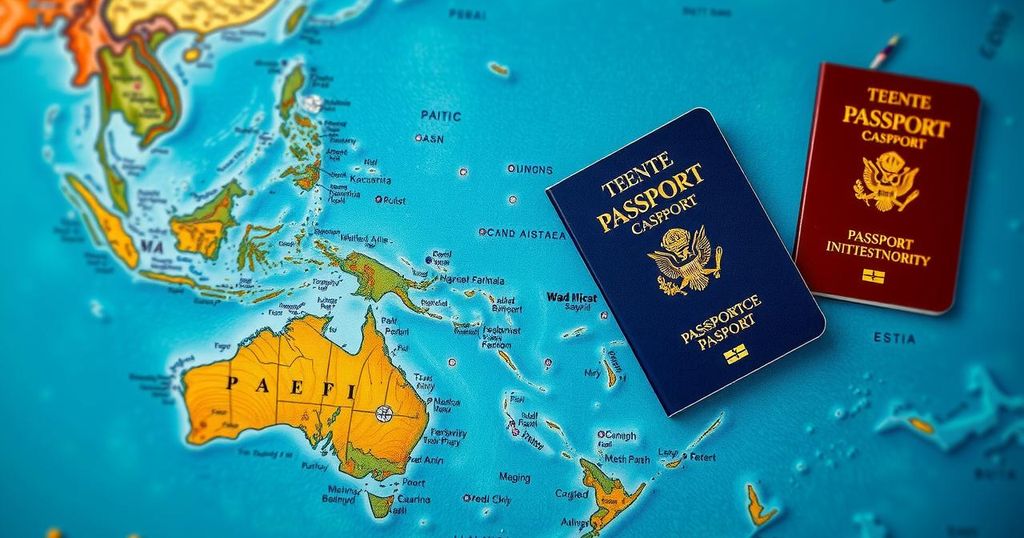Vanuatu’s unexpected loss of visa-free access to the EU due to lax citizenship vetting raises red flags for Solomon Islands and Nauru, who are contemplating similar citizenship by investment programs. This situation emphasizes the crucial need for stringent background checks and solid regulatory measures to mitigate the risks of diplomatic and economic ramifications, as highlighted by Vanuatu’s experience.
The recent revocation of Vanuatu’s visa-free access to the European Union’s Schengen area highlights significant lessons for other Melanesian nations, particularly the Solomon Islands and Nauru, as they contemplate initiating similar citizenship by investment (CBI) programs. This punitive action by the European Parliament, deemed a necessary step due to Vanuatu’s failure to rigorously vet citizenship applications, has underscored the potential risks associated with selling national citizenship. Despite the apparent financial incentives, both Solomon Islands and Nauru must carefully navigate the challenges posed by such schemes to avoid reputational damage and diplomatic isolation.
Vanuatu’s experience has revealed critical missteps in the administration of its CBI program, which previously provided substantial revenue for governmental operations. However, the ease of obtaining citizenship led to unchecked applications, ultimately prompting the EU to take drastic measures against Vanuatu, culminating in its severe economic and diplomatic consequences. This cautionary tale serves as a stark reminder for both Solomon Islands and Nauru as they consider similar undertakings, emphasizing the need for robust vetting processes and international cooperation.
The ongoing discourse surrounding Citizenship by Investment (CBI) programs in the Pacific Islands has intensified, particularly following Vanuatu’s loss of EU visa-free status. The European Parliament’s decision arose from concerns regarding Vanuatu’s lax application vetting and insufficient security measures. This incident illustrates the potential pitfalls of commodifying citizenship, an issue that Solomon Islands and Nauru may encounter as they explore similar CBI initiatives. Understanding the implications of Vanuatu’s downfall offers critical insights for these nations in developing their programs responsibly and sustainably.
The situation in Vanuatu serves as a pivotal case study for Solomon Islands and Nauru, illuminating the perils of inadequate governance surrounding CBI programs. To prevent similar repercussions, these nations must prioritize robust regulatory frameworks, establish effective vetting processes, and strengthen partnerships with international authorities. The lessons derived from Vanuatu’s unfortunate experience could prove invaluable for ensuring the success and legitimacy of prospective CBI programs, safeguarding not only their diplomatic relations but also national sovereignty.
Original Source: www.rnz.co.nz






